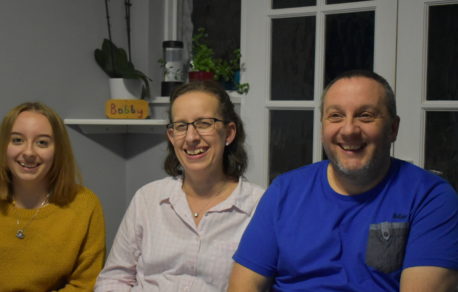
Sleep and wellbeing
Sleep expert Dr Neil Stanley gives you some simple, practical starter tips to help you get on track to improve your sleeping habits and improve your wellbeing.
Behind the scenes of sleep
Good sleep is essential for maintaining our mental and physical wellbeing. Without enough quality sleep, our minds and bodies can’t and won’t function at their very best.
So we’ve put together this short piece to tell you a little bit more about the links between sleep and wellbeing, and how taking care of the former can positively impact the latter.
You might think that when you drift off to sleep at night, your mind and body power down and take a break too. However, the reality is very different.
During your sleep, your body is a hive of activity. Your muscles are repaired, the immune system ramps up its defences and waste products are removed from your cells.
You can think of it like a night shift of maintenance staff, cleaning crew and security guards stepping up every night to ensure your body is ready to tackle whatever the coming day has in store. But it doesn’t just stop there ― your brain is also incredibly busy.
Everything that you’ve experienced during the day, all the things you’ve seen, heard, felt, learnt and anything in between, is processed, formed into memories and stored in your brain as you sleep.
All this activity in the body and mind during sleep is why you wake up feeling refreshed and ready for the day ahead after a good night’s sleep. But on the flip-side, poor sleep can spell catastrophe for our health and emotions.
How poor sleep can spell catastrophe for your wellbeing
Scientific studies have found links between insufficient sleep and many diseases and illnesses.
We know that poor sleep increases your risk of developing type 2 diabetes, obesity, and heart disease, and may contribute to the development of cancer.
Poor sleep can also affect your emotional wellbeing, making you experience negative emotions more strongly and making everyday life a struggle. Conversely, depression, anxiety and stress can all negatively impact on sleep.
When we’re stressed or anxious, we can experience “hyperarousal” as time for sleep approaches, with our bodies kicking into high-alert just at the point we should be ready to fall asleep.
Because there is a bidirectional relationship between sleep and our mental and physical wellbeing, if you take steps to improve your sleep, you’ll be likely to also experience positive changes in your mental wellbeing.
These don’t have to be giant steps — there are many simple changes you can implement to improve and optimise your sleep without making major changes to your life.
What can you do to take care of your sleep and wellbeing?
If you take care of one, you’ll see benefits to the other. Making small changes to your daily routine can have a noticeable impact, so here’s our list of things that can boost both your sleep and wellbeing:
- Sleep loves routine, so if you can get up and go to bed at the same time each day, that’s a good starting point.
- Spend some time outside. Getting exposure to sunlight helps to set your body clock, which is important in telling your body when it’s time to sleep. Spending time outside can also help to boost your mood.
- Exercise! You can either tie this in with getting exposure to sunlight, or find another way to include some exercise in your day. Either way, exercise helps us to create a sleep need, and will help your body to feel tired when it’s time for bed. It’s also another great mood-boosting activity that’s great for your physical wellbeing too.
- Try not to nap. Sleeping during the day will generally make it harder to fall asleep at night.
- Avoid caffeine, alcohol, nicotine and other stimulants close to bedtime. These can all leave you feeling more awake at bedtime, can disrupt sleep and may also add to feelings of stress and anxiety.
- Consider creating a wind-down routine, where you follow roughly the same steps each evening to prepare yourself for sleep. Again, this comes back to sleep loving routine, and it’s also an excellent way to de-stress before sleep.
- Avoid screens in the evening. TV, tablet, smartphone, computer… it doesn’t matter which. All of these omit blue light which can disrupt your sleep. Try to set a cut-off time for when you stop looking at these.
- Make sure your bedroom is quiet, cool, dark and calm.
- Manage stress and anxiety. Don’t take these to bed with you.
If you think you might have insomnia, or know you have insomnia and need support to sleep better, reach out to Sleepstation. Sleepstation is an online sleep service, which offers detailed sleep assessments and personalised support and guidance to help you improve your sleep. Access to Sleepstation is fully funded by Foothold for IET members. Find out more here.



